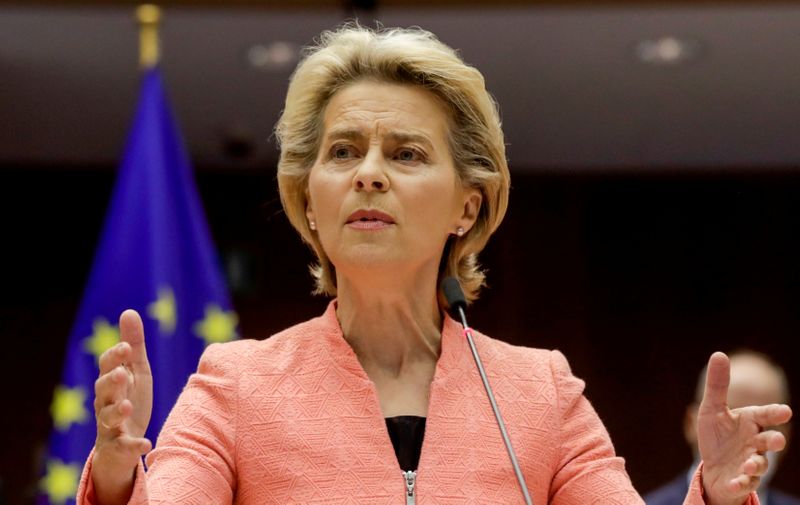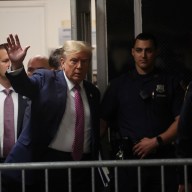BRUSSELS (Reuters) – European Union leaders will ask the EU executive next week to name strategic areas where the bloc relies too much on countries such as China and the United States, and to propose ways to make it more independent, according to a document seen by Reuters.
In draft conclusions for a summit on Sept. 24-25, the member states’ leaders say they want European industry to be more competitive globally and to increase its autonomy and resilience.
The COVID-19 pandemic has highlighted the EU’s dependence on Chinese components in the production of drugs, and concern is mounting that it is lagging the United States in the design and manufacture of batteries and in digital cloud storage.
The 27-nation bloc has set digital and green technologies as priorities, goals that were underlined in a “state of the union” speech on Wednesday by Ursula von der Leyen, President of the European Commission, the EU executive.
The bloc wants to finance the transformation to such technologies by using much of its 750-billion-euro ($890-dollar) fund for kick-starting the economy after the pandemic.
The draft conclusions – which could still be subject to change before the Brussels summit – show leaders would name the European Battery Alliance, the Internet of Things and Clean Hydrogen Alliance as projects for the EU to focus on.
They will also call for the development of new industrial alliances, including on raw materials, micro-processors, telecommunication networks, low-carbon industries, and Industrial Clouds and Platforms.
The leaders will also declare they want “a significant part” of the 1.8 trillion euros that will be available to EU countries under the bloc’s budget and recovery package over the next seven years to be invested in supercomputers and quantum computing, blockchain, human-centred Artificial Intelligence, microprocessors, 5G mobile networks or protection against cyber threats and secure communications.
(Reporting by Jan Strupczewski and Gabriela Baczynska, Editing by John Chalmers and Timothy Heritage)













